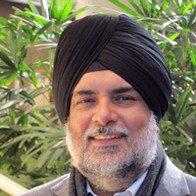Dear Reader
Two months ago I wrote about the murder of a seven-year-old boy named Pradyuman Thakur, allegedly by a bus conductor in Ryan International School in Gurugram on September 8, that potentially changed the way security and safety is viewed in schools all over India. As it turned out, there was a twist in the story as a result of the case being handed over to the federal investigation agency, the Central Bureau of Investigation (CBI) from the local police for further investigations. The twist in the tale is that CBI has said that the bus conductor does not seem to be guilty and the finger of suspicion is now pointing at a sixteen year old Class XI student of the same school who was arrested on November 8.
As the case progresses in court where CBI is seeking maximum punishment for the accused before the Juvenile Justice Board (JJB), if it is established that Pradyuman was indeed murdered by the Class XI boy and after the analysis of the mindset of the accused, he may be punished with life imprisonment. However, if the accused is treated as minor, he will be sent to a correctional home for three years.
Juveniles accused of a crime or detained for a crime are brought before the JJB under the Juvenile Justice (Care and Protection of Children) Act 2015. Under this act and provisions of the Criminal Code Procedure children are not to be taken to a regular criminal court. The purpose of a separate court is socio-legal rehabilitation and reformation not punishment of the offender. The aim is to hold a child culpable for their criminal activity, not through punishment, but counselling the child to understand their actions and persuade them away from criminal activities in the future.
A juvenile delinquent is a person who is typically below 18 years of age and commits an act that otherwise would have been charged as a crime if they were an adult. Juvenile delinquency, also known as “juvenile offending”, is participation in illegal behavior by minors (juveniles, i.e. individuals younger than the statutory age of majority).
The worrisome trend that is emerging is that many crimes today are being committed by juveniles who it appears, are increasingly getting criminalised! One of the six accused in the gruesome 2012 Nirbhaya rape case too was a juvenile.
According to data released by the Haryana State Crime Records Bureau (SCRB), around 5% of all murders in Haryana in 2016 were committed by juveniles and an overwhelming majority of the juveniles apprehended for murders were males belonging to the 16-18 age group. Apart from these murders, juveniles committed 64 rapes, 40 kidnappings and abductions and 12 dacoities. On the national scale murders by juveniles have also shown a surge in the last ten years, notes a 2013 report. As many as 531 youngsters below the age of 18 were apprehended for murder in 2001 as against 888 arrests between January and December 2011.
There are many factors contributing towards the criminal nature of youths. Most of these youths come from families of discord or abuse. Peer pressure and neighbourhood also influence the development of a child. Poverty is also one of the main causes for a delinquent youth. Although education plays an important role in moulding the future citizens, the system somewhere lacks in the ability to hold the attention of non-academic individuals and thus contributes towards many cases of juvenile delinquency. Delinquents are typically those who take studies like a burden and on being rebuked turn towards crime.
The Prime Minister, NarendraModi, in his 2014 Independence speech encouraged the parents to take account of their children. He has said, “The law will take its own course, strict action will be taken, but as a member of the society, as parents, we also have some responsibilities.”
It is rightly said that a child is the father of the man. Whatever qualities are imbibed in a child, will stay with it till the end. With good qualities, we have good future citizens, and vice versa. Undoubtedly, every delinquent youth is a victim of circumstance. No human is ever born bad or wrong. So it is the duty of every citizen of India, as parents, teachers, relatives, friends, to guide the future generation of India into the right path. It is important to remove the bad from the individual and not the individuals themselves.
Wishing you a Merry Christmas and a very Happy, Healthy, Prosperous and above all, a Safe New Year.
Cheers and Happy Reading,
G B Singh
Email: editor@securitytoday.in
Follow me on @EditorGB
Connect with me on Linkedin







